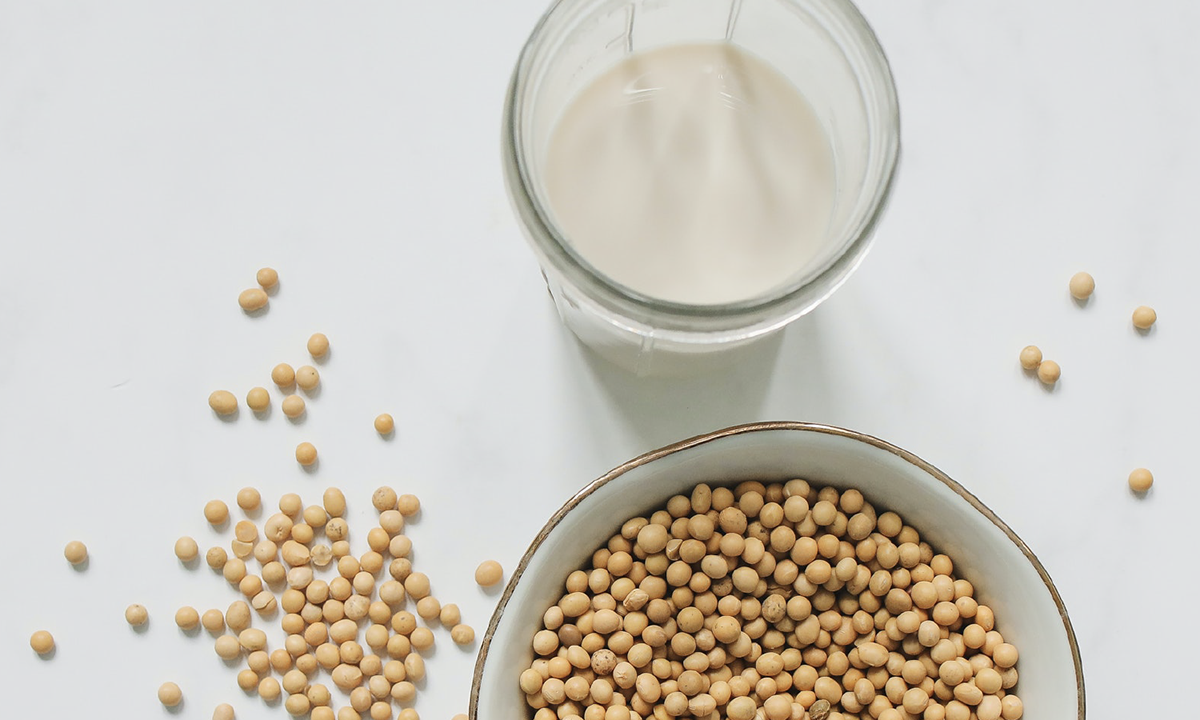What is Soy Protein? Insights from Consultant Dietitian Mollie Greenway
Dive into the world of nutrition and agriculture to uncover the secrets of soy protein, as we tap into the expertise of Consultant Dietitian Mollie Greenway. Mollie’s profound understanding of dietary health is further enriched by her unique connection to soybean farming through her husband, Brent Greenway.
Mollie addresses the many facets of soy protein, shedding light on its composition, benefits, and versatile applications. As a main protein source in a variety of soy-based foods such as tofu, edamame, tempeh, and soy milk, soy protein stands out for its unique nutritional profile. Mollie takes us on a journey through the questions you've been curious about: Is soy protein healthy? How does it contribute to overall well-being? What's the buzz around soy protein isolate? Discover how soy protein, with its complete amino acid profile and numerous nutrients, can be a valuable addition to your diet.
Whether you're seeking to enhance your protein intake, manage your weight, or simply make mindful choices, Mollie's insights provide a roadmap to better understanding the world of soy protein and its role in supporting a balanced lifestyle.
What exactly is soy protein, and how is it different from other types of protein sources?
Soy protein is the main protein source in soy foods including tofu, edamame, tempeh, soy milk, soy protein powder, etc. Soy protein is one of the few plant proteins that includes a good balance of all nine essential amino acids.
Is soy protein healthy for you?
Soy foods can be a great option to add into a balanced diet. Soy products are unique because they are a complete plant protein that offer not only protein, but a good source of fiber and other nutrients. For instance, edamame is a good source of fiber, potassium, and magnesium. Tofu, another soy food, is a good source of iron and calcium. Using edamame as a protein source in the diet serves a second benefit with its fiber, as many Americans do not get the recommended amount of dietary fiber per day. Tempeh is a fermented soy food that is a good source of protein, iron, potassium, B6, magnesium, and calcium.
What are the benefits of incorporating soy protein into your diet?
How does it contribute to overall well-being? Research continues to support eating patterns that are high in plant foods to promote heart health, disease management, anticancer properties, etc. Soy foods are nutrient dense foods that provide a way to add protein to the diet while also increasing plant consumption.
What is soy protein isolate, and why is it gaining popularity among health-conscious individuals?
Soy protein isolate is the product that comes from separating the soybean protein from the carbohydrate and fat. As a dietitian, I recommend using whole foods as part of a balanced diet (i.e. edamame and tofu vs. protein powder) to really be able to get a good variety of nutrients in the diet. However, soy protein isolate can be a way of incorporating plant protein into the diet in a more concentrated form to meet goals (i.e. increasing protein for strength, weight management, chronic medical condition, etc.) Soy protein isolate is also used in many food products on the market like protein bars, that can be convenient and used in moderation as part of a balanced diet.
How does soy protein powder work as a dietary supplement, and what are its potential advantages?
Protein powders can be useful when there's an emphasis in the diet for increasing protein intake to meet nutrition goals, while still controlling other macronutrients and calories. Protein powders can also be helpful for those with decreased appetites for medical reasons who may require adding protein and calories to liquids or smaller volume foods.
What are some unique ways you’d recommend to those interested in incorporating soy foods in their diet?
I find soy foods to be a great addition to multiple dishes. Edamame is fun to add into stir fry, fried rice, and salads for a little texture. Tofu can be very versatile as it takes on the flavor of the dish it is used in, and can also be a good base for smoothies. Soy milk is a great alternative to dairy for those with a milk allergy or lactose intolerance, as it naturally has a more comparable protein content than other dairy alternatives.
Empower Your Quest for Nutritional Excellence
From unraveling the composition of soy protein to understanding its benefits and versatile applications, Mollie's expertise sheds light on its significance in our diets. Whether you're seeking a healthier lifestyle, a more diverse menu, or a protein boost, soy protein opens the door to a world of possibilities. So, as you venture forth on your nutritional journey, remember that soy protein offers not only sustenance but also an avenue to embrace a well-rounded and vibrant approach to well-being.





